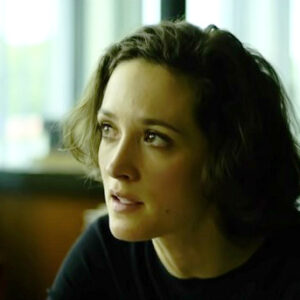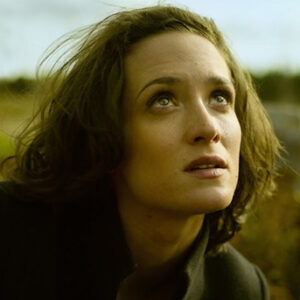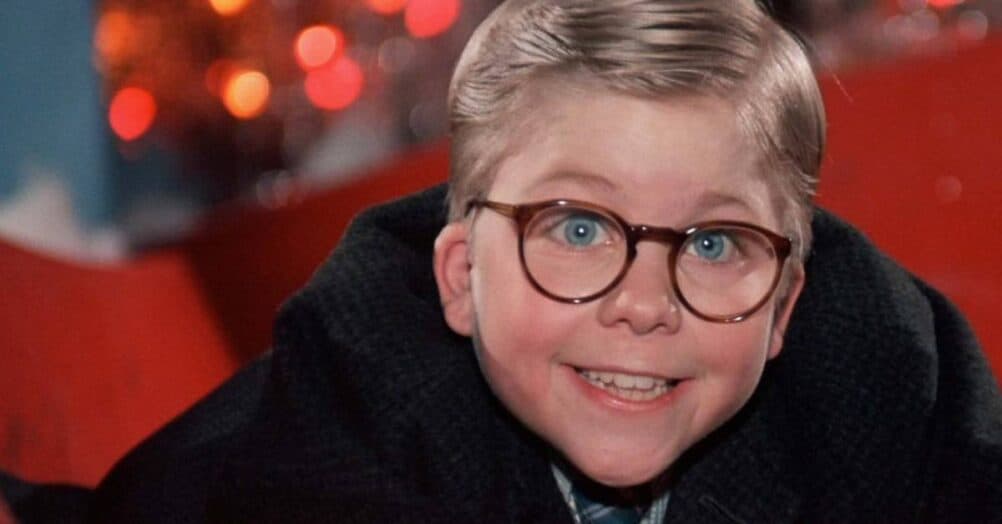
I
never thought that I would ever root for a serial killer in any
film, ever!!! The opening scene is an immediate validation that
British import Ben Whishaw is a hypnotic and remarkable actor who
commands unassuming attention! Having established a name for himself
in the UK by making his debut in West End, at the National Theatre
in their stage adaptation of Phillip Pullman’s “His Dark
Materials”, and then receiving great critical acclaim in the title
role of “Hamlet” in Trevor Nunn’s version of the play at the
Old Vic, there is no doubt he will be taking Hollywood by storm.
The
humble and endearing newcomer puts on a mesmerizing and refreshing
performance as Jean-Baptiste Grenouille in the upcoming film PERFUME:
THE STORY OF A MURDERER. Based on the best-selling novel by
Patrick Suskind and directed by the highly acclaimed German Tom
Tykwer (RUN LOLA RUN), PERFUME is the story of a fearless and
isolated boy, blessed (or cursed) with a refined and acute sense of
smell. I had
the opportunity to sit down with the extraordinary and soft spoken
Ben Whishaw, as he talked about his captivating and riveting
performance as Grenouille, his preparation for the role, working
with the great Dustin Hoffman and his take on smell in PERFUME.
Check out what he had to say.
Ben
Whishaw

Had
you ever paid particular attention to how things smell this much?
No,
I really hadn’t. Like a lot of people, I didn’t really think
about it all that much. I guess you can’t help but stop to think
about it more deeply if you’re making a film about smell, so it
has changed a bit, I guess.
What
was your center of characterization?
Well,
the thing that wasn’t that helpful actually, I think the press
notes say I took some perfume course or something. I didn’t, Tom [Tykwer]
did, but that didn’t take me very far into the character. The most
important thing, I felt, was to try and understand there’s some
kind of absence inside of him, some kind of emptiness, something’s
lacking, something’s missing, and to try to understand what it is
he wants to fill that. We discussed lots of different things, but
that was the core. We never perceived it as a position of labeling
him as a sociopath or psychopath, it didn’t feel like that would
really open up the character. We just tried to see him as a human
being as far as possible.
Did
you have to visualize the time period to conjure up those old
smells? Or was it enough just being there?
Yeah.
It felt very vivid anyway because the set was so incredible and
detailed. It didn’t leave me much imagining to do because it was
all there and often it did really smell bad, so that helped, I
guess.
Did
you have any trepidation about taking on a character that kills
women?
Not
trepidations in that sense. I had trepidations because the character
is so uncommunicative, there’s not much to go on from the page,
from the screenplay. I had questions about that and also, we all
felt the pressure of adapting, as anyone would, a very well-loved
novel. That was what I felt most intensely. Strangely, I don’t
know what that says about me, I didn’t really worry too much that
killing women would be a bad way to make a debut in a big film, it
didn’t occur to me.
How
does this character compare to someone like Hamlet?
Interestingly,
it felt quite similar as a role because Tom is a director that likes
to strip actors down, he has a certain taste in the way he directs
actors. I certainly imagined, when I first read the script, that it
would be more of a case of putting things on, like something more
extreme in terms of body shape. Tom wanted it a bit more naked and
wanted to go inside the character so it felt very similar to working
on a part like Hamlet. There are certain parallels anyway, in terms
of the sort of territory they both enter into – the obsessive quest
that they’re on and this kind of introspective path of their
natures. I can see a connection between the two.
A
few people have compared your performance to Anthony Perkins that
you have that same level of intensity he put in ‘Psycho’.
I
love that film. I’ve not really seen much else he’s done. I love
Hitchcock and another film that I didn’t see before making
Perfume, but I saw subsequently, a film called ‘Peeping Tom’
which I think there’s something similar, there’s a connection.
What
was it like working with Dustin Hoffman in the sense that his role
was big and boisterous, and you had to play so small?
It
never felt like it was some kind of battle to hold my own against
him because that’s the nature of their relationship. You have one
character that is extremely flamboyant and aware of his position in
a social sense and then another character that’s totally inward
and totally had no understanding of society and human interaction.
That just had to be that way. The fact that Dustin is a
Hollywood
legend and I’m sort of nobody actually was helpful. We let that
feed into the performances. It felt very smooth and very playful.
How
is he to work with, in general?
He’s
really friendly. He’s the center of attention, which again is
helpful for the character and what we’re trying to achieve. He’s
really quite nurturing in a way, he gave me some really good advice
and was generous.
What
advice did he give you?
He
told me lots of things. The very first day I shot with him, I was
totally freaking out, seeing him in his full regalia and I
couldn’t get something and I was getting frustrated, Tom was
shouting directions at me and I started to lose it and then sort of
quit and dropped the ball and they said ‘Cut.’ And Dustin said,
‘That moment is when it really came alive. You should have kept
going! It’s all about the accidents; it’s all about the
accidents.’ I totally understand what he means; I think it’s a
confidence thing, really. There is something exciting when what
you’d planned or preconceived goes out the window and something
else happens, might be accidental or a mistake, but it takes you
somewhere new.
What
distinguishes Tom from other directors you’ve worked with?
I
haven’t really had a big enough part to have a relationship with a
director in film. It’s always been a day here, a day there. In my
limited experience, what seems really special about Tom is that he
really wants to have collaboration; he’ll listen and will take on
what you have to say, even if it’s critical or if you’re raising
difficult questions. He wants to hear it and that, to me, seems
quite rare.
What
kind of questions did you raise with him?
I
can’t remember precisely because in my mind it’s slightly
blurred as to who decided what. It was usually stuff about the
balance of the character – how much we needed to worry about him
being sympathetic, how much we needed not to worry about it, the
contradictions in him. Also how he talks, because at first Tom
wanted to change the script and I had to tell him, ‘It doesn’t
make sense that he’s talking like this, he wasn’t educated’
little changes like that. We discussed everything, it’s not like
he sat in a room and did it all himself and I was just a puppet, he
really shared everything with me.
What
was the most challenging for you?
The
final climactic scene on the scaffold was tricky because the whole
film really hangs upon that moment and you’re just looking at a
face and a body. It’s quite an interesting little arc that happens
in that sequence, I guess I found that quite difficult.
Did
you have any trouble sustaining the character or leaving it behind
when you weren’t filming?
I
never tried to not let go of the character but the character
wouldn’t let go of me in some way because he’s so alone much of
the time and I had so few scenes with somebody else to play off. I
did start to take that home after awhile but I think Tom managed to
dig me out of that little black hole.
This
character is a serial killer and yet, there are places where people
might cheer him on. How can you explain his likeability, if there is
any?
I
think it’s something to do with the fact that there’s something
innocent about him, even though what he’s doing is obviously
wrong, even evil. There’s a kind of lack of awareness and a lack
of understanding. The thing I find interesting is that what he’s
done, psychologically, is that he’s whittled the world down to one
thing; the world is nothing but smell. It’s a way of controlling
and understanding the world that terrifies him. I think there’s
something about that that is quite human and something we can
connect with. Fundamentally, I suppose, he’s someone who wants to
be loved. He goes about it in a very peculiar way, but that’s what
he wants and who doesn’t want that? That’s probably what makes
him, for me, sympathetic.
How
do you develop your characters? Is it more of an inward thing or do
you draw from other actors?
It’s
a mixture and it really depends on the character. This character
really felt like it had to come within. Some characters are really
social characters and they’re all about the surface details and
then there are characters that exist on a different plane. They’re
emotional characters and they’re all about internal stuff. This
character, Hamlet the same, they’re inward-looking. Certainly
sometimes you have to turn your attention outward and you have to
sort of steal in a magpie-like fashion, certainly, sometimes.
What
is the best thing to have come out of making this film for you?
I
think it’s working with Tom, just generally. He’s somebody I
really feel now is a really dear friend. Somebody I’d like to work
with again and somebody who I share things with; we look at things
in a similar way and have similar tastes and interests. I found
working with him very satisfying on a creative level and personal
level as well.
What
do you think of the film, now that you’ve seen it in full?
I
found it very brave… it unfolded in a much slower way than I
expected. I love the way Tom allowed certain sequences to really
breathe in a way I hadn’t expected. I watched it with an audience
in Basil, the premiere there and it was really interesting to see
all the stuff about what we’d been talking about – would people
just be repelled, would they give a shit about him. You can’t tell
what’s going on inside of people, but people wanted to stay. The
film clearly had sort of cast a spell over them so that was quite
gratifying.
Were
you able to enjoy any of the beautiful locations where you filmed?
I
didn’t have a whole lot of time off, but I did sometimes go sit on
the beach in Barcelona. I went to the coast as well, to just get
away. I didn’t see as much as I would have liked and I didn’t
really get to hang out with the cast because there weren’t many.
If I wasn’t filming, they were so again, the loneliness ensued.
They were beautiful places; it was a wonderful way to spend the
summer.
That
orgy scene had a lot of people around…
That’s
true, except again, I wasn’t involved.
How
would you describe your character?
I
would describe him as…
No,
your character.
Oh,
my character. F*ck! God. That’s a hard question to answer because
I can be anything, it depends what day you catch me. Some days I
find this situation [press interviews] unbearable, I want to
disappear into the floor, and other days it feels really nice so
I’m shy and extroverted.
How
about today?
It
feels very nice today. Good vibes.
What
part did you play in the stage version of ‘His Dark Materials?’
I
played small parts. My biggest part was a character that wasn’t in
the novel, a clerk they wrote for the stage.
Would
you be interested in doing the movie version?
Yeah,
I’d love to. It’s another incredible book, trilogy of books.
Did
you read this book before filming?
I
read it about four times. I was reading it a fifth and Tom said,
‘Put the book away. We’re making the film.’ So I tried to get
as much as I could out of it.
Are
you doing another film right away?
No.
I’ve been so busy doing the publicity for this. I finished this
Bob Dylan thing about a month ago. I play one of the Bobs, even
though none of us are really Bob, we’re aspects… I’m the poet.
I play around ’65, ’66. I’m dressed a bit like Bob Dylan
crossed with Arthur Lambot the French poet.




















Follow the JOBLO MOVIE NETWORK
Follow us on YOUTUBE
Follow ARROW IN THE HEAD
Follow AITH on YOUTUBE